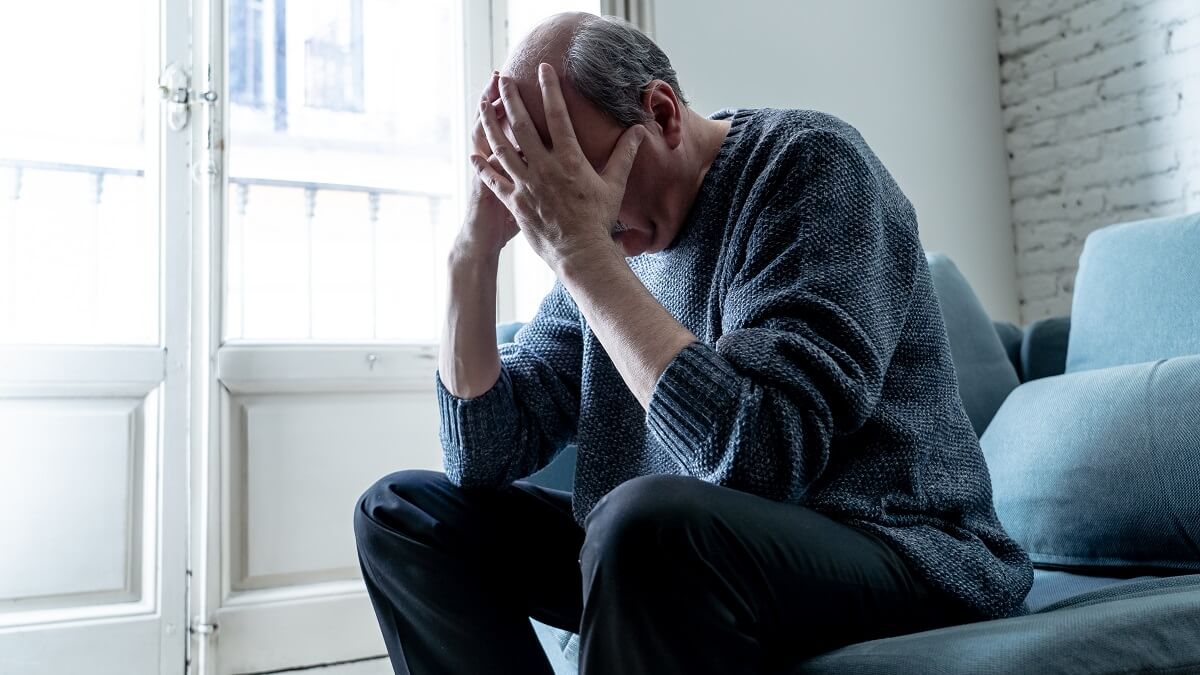When the topic of suicide is raised, my first thought is usually of younger people. The tragedy of young ones taking their own lives somehow seems particularly acute. I think about the decades of potential happiness they may have had if they had lived.
Or perhaps my thoughts turn to youth because we seem to rarely hear of suicide in among older people. But Australians over 50 are by no means immune to this scourge. And perhaps it’s time for my generation to be more open about this.
What’s perhaps even more surprising about my first thought when the topic is raised – younger people – is that I have suicidal thoughts myself during my 50s. (I have struggled with depression for at least two decades.)
Why have I not considered suicide as a major issue among older generations? I think it may have been because I have seen myself as somewhat of an outlier. I probably believed not many others my age and older suffered from such thoughts.
But a glance at the statistics shows my belief was wrong – and by a significant degree.
Older Australians and suicide – what does the data tell us?
America’s National Council of Aging (NCOA) recently reported suicide is one of the leading causes of death in the US. Worryingly, it revealed that rates are on the rise, and this was especially true among people aged 65 and over.
In fact a report in the Guardian this week painted a very disturbing picture among older people globally. Worldwide people over 70 are taking their own lives at nearly three times the rate of the general population.
As a nation similar in many ways to the US, is Australia facing a similar crisis? Sadly, the data indicates that is indeed the case.
According to the same Guardian report, the highest rate of suicide in Australia is among people over 85. This sad fact is true of both men and women. The reported rates are 32.7 deaths per 100,000 for men and 10.6 per 100,000 deaths for women, respectively.
Shockingly, one expert believes that the actual rate is higher still. Professor Diego De Leo, emeritus professor of psychiatry at Griffith University, says many suicides may not be investigated as such.
Prof. De Leo said unless an older person’s death is very clearly a suicide, it’s not likely to be investigated. He cited deaths relating to misuse of medication or even falls that may have been deliberate as examples. These are often assumed to be the result of senility or frailty.
Given these revelations, what can we do?
Perhaps the best thing older Australians can do is to actually discuss the issue. A colleague of mine this week referred to older Aussies the last generation “holding onto the ‘shame’ about mental health”. What’s more, she continued, “we seem to be doing nothing about it.”
Opening the lines of communication certainly seems to be an excellent starting point. There are, however, some complicating factors when discussing suicidal thoughts in older people. Because older people are undoubtedly more likely to die from age-related causes, they will always be a factor, meaning mental health issues may be overlooked.
This conundrum is well summed-up by Prof. De Leo. “If someone comes to me and says ‘I want to die because I’m depressed and I see no solution to my depression’, well, as a physician I have to do my maximum best to intervene and try to improve the depression of this person.
“But [if someone comes with] chronic pain, chronic suffering [with] no hopes for improvement and inevitability of a progression of the suffering … then I feel different.”
Practical measures for suicide prevention in older Australians
Clearly, discussions on this topic can be confronting and complex. But the Australian population is ageing so they are discussions well worth having. The NCOA offers five support steps we can take. These are:
- Ask
- Be there
- Keep them safe
- Help them connect
- Follow-up
Each of these is expanded upon on the NCOA website. While the NCOA is a US organisation, the advice will ring true for most Australians. And it may just save the life of a loved one.
Have you been affected by the suicide of an older person? Do you think more needs to be done to raise awareness of this issue? Let us know via the comments section below.
Also read: Silent issue of suicide among older Australian men
Lifeline: 13 11 14 or lifeline.org.au
Health disclaimer: This article contains general information about health issues and is not advice. For health advice, consult your medical practitioner.

